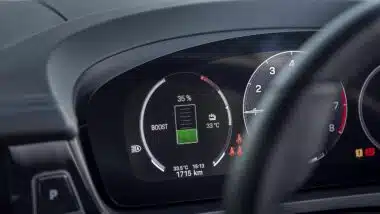 Some patients who received an IVC filter say they came down with IVC filter removal complications, forcing them to leave failed filters in place.
Some patients who received an IVC filter say they came down with IVC filter removal complications, forcing them to leave failed filters in place.
These filters are implantable devices used as an alternative to anticoagulant medication in patients for whom such medication is not a good idea.
The “IVC” stands for “inferior vena cava,” the large vein that returns blood from the lower body to the heart.
A doctor positions the filter inside the inferior vena cava, where if all goes well it remains in place and blocks blood clots from traveling from the legs towards the heart and lungs, where they could otherwise cause a potentially fatal pulmonary embolism.
Some IVC filters are designed to remain in place indefinitely. Others are designed to be removed after the risk of embolism has passed.
But some IVC filter removal complications may prevent retrievable filters from being removed.
In a study published in the Journal of the American Medical Assocation in 2013, researchers noted that over 18 percent of attempts at removing IVC filters were unsuccessful. Patients whose filters can’t be removed may then have to live with the ongoing risk of future IVC filter complications.
The risk of IVC filter removal complications prompted the FDA to issue communications in Aug. 2010 and updated in May 2014, recommending that retrievable IVC filters should be removed from the patient as soon as they are no longer at risk for embolism.
The agency says the risk of IVC filter removal complications warrants that these devices remain implanted no longer than is absolutely necessary.
FDA Relays Reports of IVC Filter Removal Complications
The FDA keeps track of these reported incidents though its adverse event reporting system.
According to the agency’s 2010 communication, the FDA at that time had received over 900 reports of adverse events involving IVC filters. Among those reports:
- Over 300 involved device migrating out of their proper position;
- 70 reports involved perforation of the surrounding tissue; and
- Over 50 reports said the filter had fractured into pieces.
In the 2014 update, the FDA also noted cases of IVC filter occlusion and lower limb deep vein thrombosis have been observed in conjunction with the long-term use of these filters.
The FDA believes complications like these happen in part because the filter is left in place longer than is medically necessary.
For that reason, the agency recommends they be removed as soon as they’re no longer needed.
The risks associated with these devices – and more specifically, the ways in which their manufacturers dealt with those risks – have prompted a wave of products liability litigation.
Manufacturers like C.R. Bard, Cook Medical and Boston Scientific have been on the receiving end of claims of negligence by patients who say their IVC filter removal complications could have been avoided.
One plaintiff claims pieces of her fractured IVC filter migrated to her heart. When informed that removal of the pieces would require open-heart surgery, she opted instead to take anticoagulant medications for the rest of her life.
Other plaintiffs allege fractured filter parts migrated throughout their bodies, sometimes lodging in place and defying attempts at removal.
In general, IVC filter lawsuits are filed individually by each plaintiff and are not class actions.
Do YOU have a legal claim? Fill out the form on this page now for a free, immediate, and confidential case evaluation. The attorneys who work with Top Class Actions will contact you if you qualify to let you know if an individual lawsuit or class action lawsuit is best for you. Hurry — statutes of limitations may apply.
ATTORNEY ADVERTISING
Top Class Actions is a Proud Member of the American Bar Association
LEGAL INFORMATION IS NOT LEGAL ADVICE
Top Class Actions Legal Statement
©2008 – 2025 Top Class Actions® LLC
Various Trademarks held by their respective owners
This website is not intended for viewing or usage by European Union citizens.
Get Help – It’s Free
Join a Free IVC Filter Class Action Lawsuit Investigation
If you or a loved one were injured by IVC filter complications, you may have a legal claim. See if you qualify to pursue compensation and join a free IVC filter class action lawsuit investigation by submitting your information for a free case evaluation.
An attorney will contact you if you qualify to discuss the details of your potential case.
Please Note: If you want to participate in this investigation, it is imperative that you reply to the law firm if they call or email you. Failing to do so may result in you not getting signed up as a client, if you qualify, or getting you dropped as a client.
Oops! We could not locate your form.












